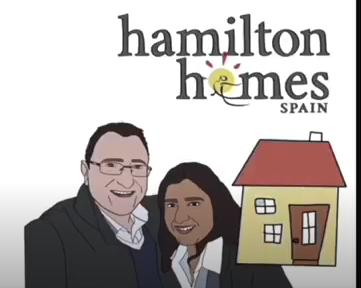What impact will COVID-19 have on the real estate market in Spain?

Over the last month, I have attended a number of online webinars, listened to numerous opinions of leading economists, and spoken on a panel at a Webinar for other agents. Many clients and colleagues ask me the same thing. How will Covid19 affect the Real Estate Business in Spain? What will happen to house prices?
In reality, no one really knows what the future will bring. This crisis is unprecedented. However, this is completely different to the 2008 recession which was brought on by a collapse in the banking system. The difference being that we have been thrown into this situation almost overnight. However, we know that it is health triggered, not brought on by a crashing economy. In fact, the stringent banking rules imposed after the last crisis have served to ensure that the economy is in a better position than it was before. The real crux lies in what is to follow.
There are many different schools of thought and a debate as to whether we will see a ‘V-shaped’, ‘U-shaped’ or ‘L-shaped’ recovery. The most pessimistic economists foresee up to a 20% drop in house prices whereas the optimists do not believe that this will be the case and see a 5% fall to be more realistic. They think that the economy may dip in the very short term but they anticipate a big bounce back.
It is still very early to predict what will happen in the medium and long term due to the uncertainty of how we will come out of confinement, when international travel will resume, what restrictions may be put on people viewing properties, whether there will be a need for another lockdown and how the consumer will react.
Despite these uncertainties, there are a few trends and emerging patterns that we can use to help predict how the market will be affected.

Photo by Jernej Furman
The Immediate Impact on the Real Estate Market in Spain
The lockdown brought the real estate business to a complete standstill. The first week of lockdown saw enquiries fall to close to zero. However as the weeks have evolved, there has been a slight change in pattern as we see a gradual increase in general enquiries. Despite the latter, we are not physically able to go on viewing trips so the market is 100% stopped in terms of new client viewings. An article in El Pais last week suggested that we will be down by 50,000 sales by the end of this year in comparison to last year, and added that this was an optimistic viewpoint.
The fate of individual real estate companies will be very dependent on primarily their cash flow and secondly how easily they can adapt to the changing climate. Javier Sierra, President of Remax Spain, claimed that a significant amount of realtors would be forced to leave the market. Only the best agents will survive leading to a more consolidated, professional industry.
Property Sellers in Spain:

I have spoken to a number of sellers and they fall into two categories.
Those who are not in a rush to sell – those who are not highly leveraged are loath to reduce prices at present and have suggested that they prefer to wait than reduce their prices.
Those who need short term liquidity – On the other hand there are sellers who have a second residence here and have lost their jobs and they are in a much more difficult position and will potentially be forced to reduce their prices. Given this, we will probably see some very good value properties, but at the same time there will be many sellers that decide to withdraw their property from the market in the short term or stick to their asking price.
Property Buyers in the Spanish Real Estate Market:
Existing Buyers
The beginning to end process of buying a property can take several months.
During this lockdown, many notaries closed their doors but many are now up and running. There were many people who were stopped in the middle of the process – they had found houses, got mortgages and were ready to complete. These people are able to complete now as notaries are back up and working. There are also those clients who are stuck in the bureaucracy – waiting for properties to be registered, waiting for banks to accept mortgages, many of these deals are paused as banks are bombarded with processing emergency loans and land registries have been shut. Many of these deals will still take place – in fact, I have clients who are desperate to get to their new homes, but are forced to wait.
Equally on the flip side, we have had clients who have found houses, have got mortgages, have been ready to sign. However, their circumstances have changed overnight and they have lost their jobs, leading them to back out of their purchase.
Emerging Buyers
Whilst we undoubtedly will see a fall in demand due to increased unemployment and staff being furloughed, I believe that we will see a new buyer segment emerge.
It is likely that more business owners will consider allowing employees to work from home. This trend had already started to appear prior to the Coronavirus outbreak. Last year, a handful of our international clients decided to live in Spain whilst still working for UK/US based companies. Moving forward, we are likely to see this trend increase. People will not be constrained to living in a set geographic location close to their work. Those who were waiting to move to Spain on retirement, may be tempted to reconsider their position and bring forward their relocation. In the domestic market, we will also see a shift in buyer behaviour where buyers may look for properties outside densely populated areas.
A shift in buyer behaviour when purchasing a property in Spain
A recent Idealista Report showed that search criteria on their portal had changed with a fall in the percentage of people looking for a property in big cities to a shift to people looking further afield.
A shift in property search criteria in the Spanish Real Estate Market
People have basic needs. These basic necessities include food, shelter and clothing. In this time of Covid19, the home has been our place of security – our haven. The home now encompasses a wider need. Not only has it protected us from Coronavirus but we have all been working, socialising, home schooling, interacting and playing games via zoom, whereby.com etc from our homes. Going forwards people are going to be looking a little more carefully at what they require from their home when they buy. We are likely to see people looking for:
- Houses /apartments with outdoor space, a larger terrace, a garden and a house with a private pool
- Additional space so that they can have a home office
- Homes / houses with views, more light and areas with better air quality
- People consolidating – selling several apartments to buy a bigger residential house
- Up-sizing – moving from small apartments to a bigger home
How will the changes affect your Real Estate Company in Spain?

There will always be people buying and selling houses. Eg divorcees, separations, inheritance, young people moving from the family nest, couples starting a family and needing a bigger property. Life changes are going to continue to happen.
A home is not a product that people will normally buy online. It is only in some circumstances when you get an investor client or client who has done the research, knows the area, and will then buy without physically visiting a property.
How we will adapt to the new model of Real Estate Agency
Going forward, we will adapt to our buyers and sellers. In 2008, we moved from an office open to the public to an internet-based office. Since then, most of my initial meetings with clients have been via Skype, WhatsApp, and over a coffee. As many of our clients are international or have come from cities like Madrid or Seville, we have also been increasing the number of virtual tours that we have been doing. This way, when clients come to view, they already have an idea of what a property is like. We will work to improve our technology and create an environment that is safe for both buyers and sellers. We are working behind the scenes, speaking to clients to see how they feel about going on viewings or receiving clients to their properties.
Innovation in the Real Estate Industry in Spain
Out of every crisis, comes opportunity and positivity. The Real Estate Market in Spain is likely to go through a huge metamorphosis. Already, waiting times at local notaries have come down. Notaries are preparing all paperwork prior to the signing date. The parties involved literally have to step in for 5 minutes to sign. No more notorious two or three hour waits for banks to roll in! There is a lot of work going into online signatures. People will no longer have to be physically present or spend weeks waiting for contracts to arrive via snail mail. This was a much-needed shift in the industry.
Real Estate agents must begin to use technology, offer virtual tours and provide detailed information to their clients. In the old model, agents would lead clients on a full day viewing marathon. Agents will now be forced to take a new approach. They will really need to get to know their clients before viewings. To do this, they will need to share information more freely. This way they will only show their clients properties that really fit in with their criteria and within their financial constraints. This, in turn, should lead to a more efficient industry. Agents will really need to listen to and evaluate both buyers’ and sellers’ needs.
Links to Sources:
La demanda de vivienda se traslada desde las capitales a los municipios de la provincia (14APR20)



